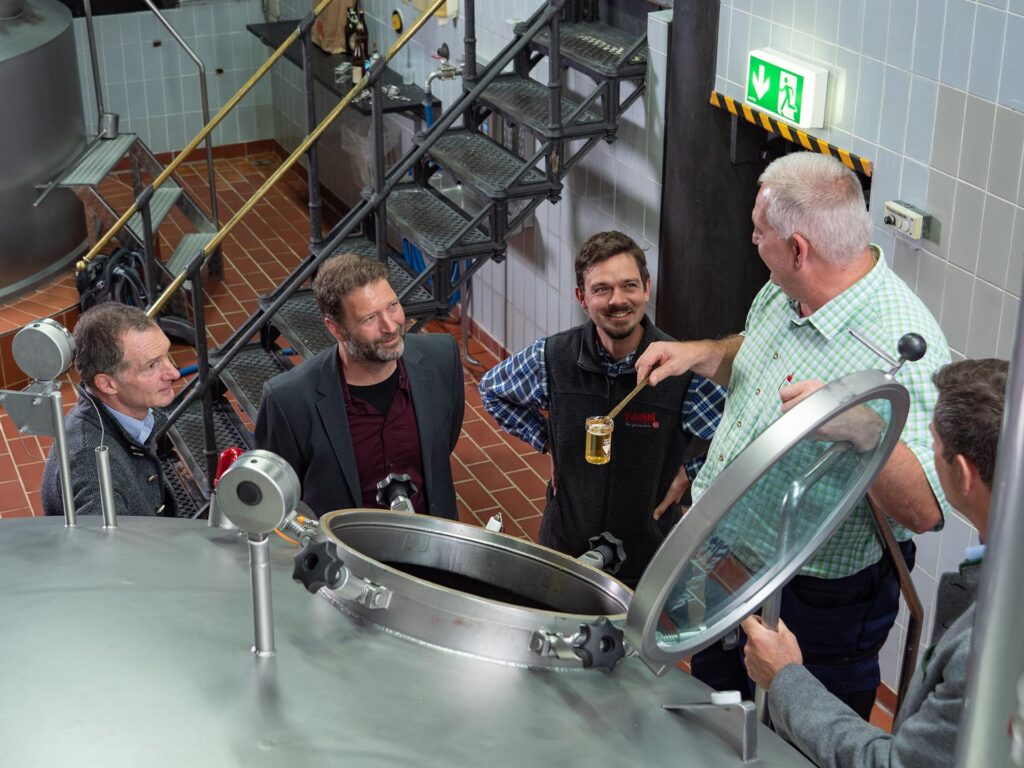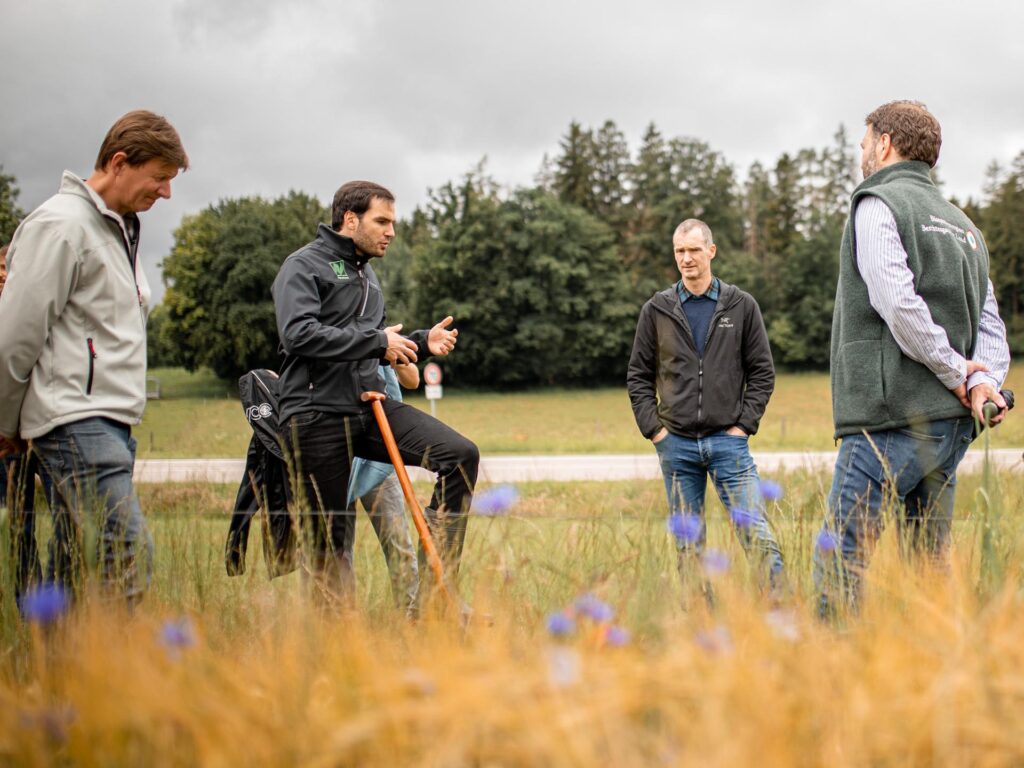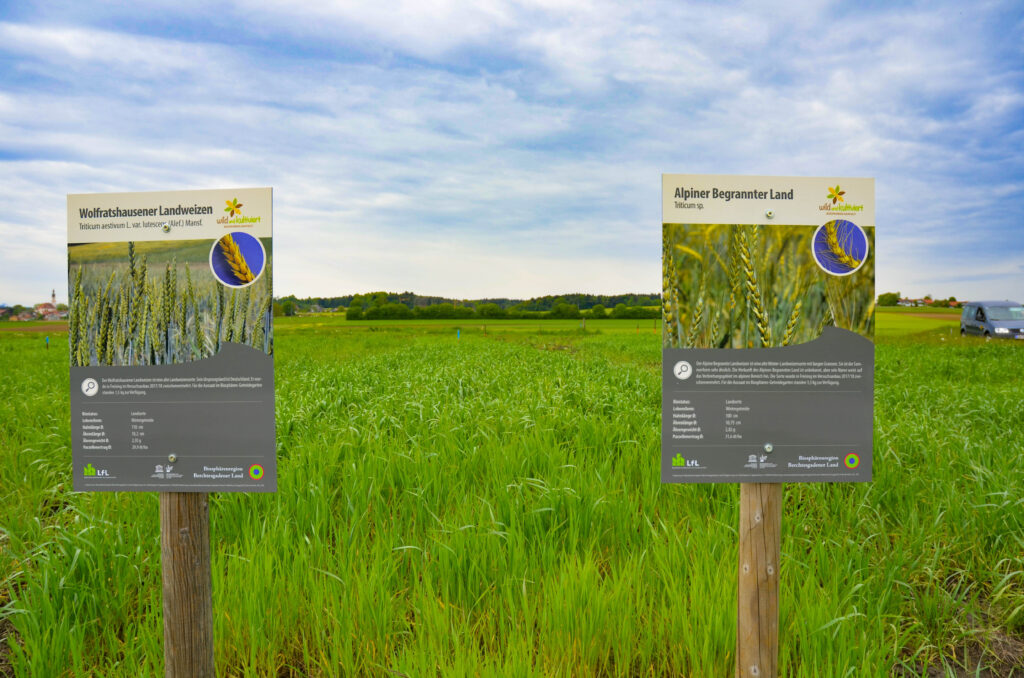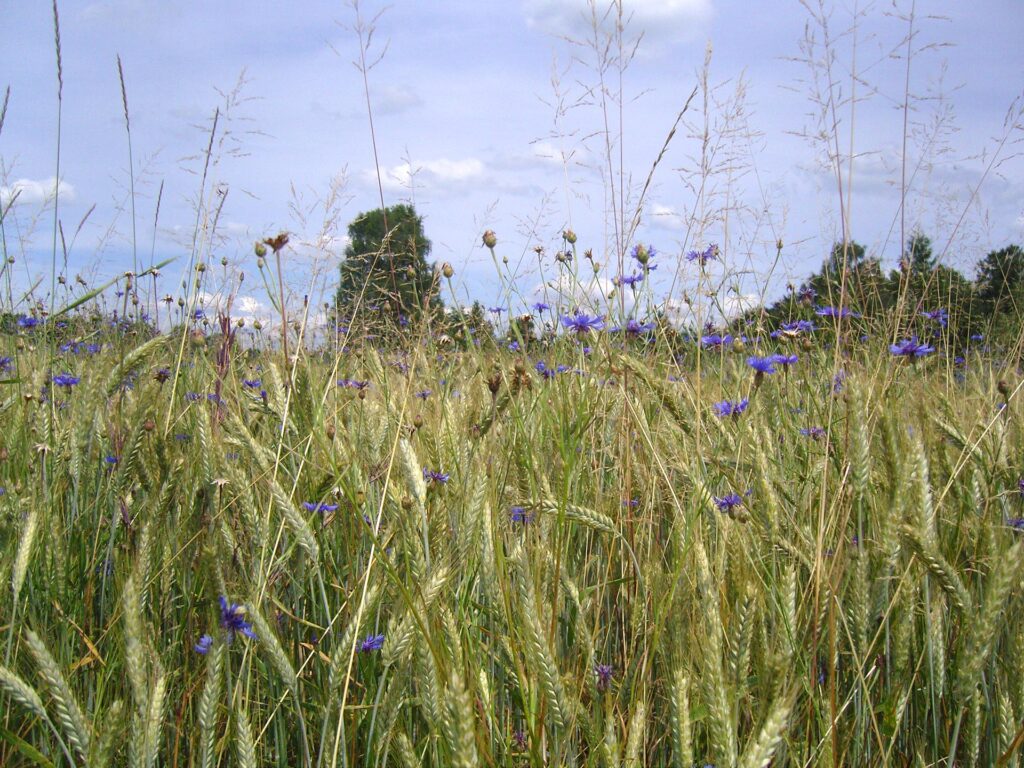Agriculture & Food Craft
Strengthening regional value creation
Sustainable, environment-friendly land management is an important cornerstone in the development of the Biosphere Region. In addition to securing regional resources, this has made it possible to create the diverse cultural landscape in the Berchtesgadener Land with its meadows, fields and alpine pastures. The pre-alpine and alpine character of the landscape, combined with a high biological diversity, was a criterion for the inclusion of the entire district in the UNESCO World Network of Biosphere Reserves. As sustainable forms of agriculture have positive effects on the conservation of natural resources, traditional small-scale agriculture is to be strengthened and the expansion of organic farming is to be promoted. For regional value creation, food craft is essential for the processing and sale on site.
Old breeds and varieties
preserving treasures of our cultural landscape
Land Use and Land Management
Pre-Alpine North and Alpine South
The natural landscape in the Berchtesgadener Land – alpine areas in the south and the pre-alpine landscape in the north – strongly determines the type of land use and land cultivation. In the alpine dominated southern district, grassland farming with cattle dominates, in the pre-alpine northern district, crop farming is practiced due to the more favorable climatic conditions, mainly for fodder and food grains. Agriculture in the south is characterized by open and alpine pastures with low and high-altitude layers. For several years now, the trend in the south has gone towards abandonment of land use, whereas land use in the north has been intensified. Due to the constant efforts of people, a small-structured, diverse cultural landscape of immense value has been able to develop. Currently, there are about 1,270 farms with an average farm size of 14.4 ha. A total area of about 18,280 hectares is used for agriculture – 14,680 hectares are grassland and about 3,600 hectares are arable land. Vegetable and fruit cultivation has a negligible share. Especially in the southern part of the district, there are many small and micro farms that work as sideline businesses. The organic share is about 14 %. Local processors, especially dairies, make an important contribution to the continued existence of farms.

Regional Value Creation
Regional value creation is an important element for the preservation of small-scale agriculture. This is why the Biosphere Administration Office, together with local actors, is providing a variety of impulses to maintain regional agricultural production as well as downstream sectors such as food crafts, gastronomy and trade. In addition to the initiatives ‘Biosphere Products’, ‘Biosphere Breakfast’, and ‘Biosphere Producers’ Circles’, the aim is to show farms perspectives for a business management through specialized events, excursions and networking offers. Regional marketing and direct marketing play a major role here.
Biosphere Producer Circles
In order for regionally produced raw materials to become an attractive alternative for domestic companies, security in the sourcing of raw materials and sufficient quantities are essential. For this reason, the Biosphere Administration Office connects farms with each other and with the food trade, gastronomy, hospitality industry and food retailers in the region. A close exchange, an understanding of different processes and the courage to try new and innovative ways are the basis for producer circles and the establishment of short value chains.

Landwirtschaft in der Biosphärenregion
auf einen Blick
Alpin geprägter südlicher Landkreis
mit Grünlandwirtschaft und Almen
Rund 1270 landwirtschaftliche Betriebe
erhalten die Kulturlandschaft in der Biosphärenregion
14 % Bio-Betriebe
wirtschaften ökologisch zertifiziert
14,4 Hektar
durchschnittliche Betriebsgröße
Voralpin geprägter nördlicher Landkreis
mit Grünlandwirtschaft und Ackerbau
rund 18.280 Hektar und damit ein Viertel der Fläche
in der Biosphärenregion werden landwirtschaftlich genutzt
75 % der Betriebe werden im Nebenerwerb geführt
vor allem im alpinen Bereich

Biosphere Grain Garden
Under the motto ‘We are keepers of treasures’, the Biosphere Administration Office, together with several farmers, has taken on the task of preserving old cereal varieties in the Biosphere Grain Garden in the community of Saaldorf-Surheim. Old varieties, such as the Laufener Landweizen, are an important part of our cultural heritage, but their diversity has declined sharply over the last 100 years. In cooperation with the project “Conservation of Bavarian Agricultural Plant Genetic Resources” of the Bavarian State Institute for Agriculture, old alpine cereal varieties could be brought back to the region. High-quality biosphere products are created from some of them.
Old varieties of cereal
The Biosphere Administration Office promotes the cultivation of old, alpine land varieties with the help of the Biosphere Grain Garden. Laufener Landweizen, Binkel and Berchtesgadener Vogel, for example, are once again cultivated on agricultural land and are processed in the region. Old cereal varieties have a high ecological and genetic value. Due to their tall and sparse growth, they also provide excellent living conditions for wild herbs in the fields.

Field wild herbs
colorful companions of great value
In the Biosphere Region, native field wild herbs are propagated and reintroduced to grain fields on organic farms. Wild herbs have a high aesthetic and ecological value: they provide food and habitat for many insects, are an important part in the biotope system and contribute to an improvement of the structure of the soil. Old cereal varieties, such as Berchtesgadener Vogel, offer excellent conditions for the reintroduction of wild herbs due to their sparse growth.
Biosphere Products
sustainable and regional
Agriculture in the Berchtesgadener Land produces valuable raw materials that are the basis for high-quality products in the food sector. They are increasingly demanded by the regional culinary craftsmanship, in food retailing and in the hospitality industry. This means that value creation remains local. These closed value chains are fundamental for the award “Biosphere Product Berchtesgadener Land Biosphere Region” given by the Administration Office of the Biosphere Region.
Be part of it
Activities in the Biosphere Region
The Biosphere Region Administration Office supports farmers in cooperation with a number of institutions and volunteers through various offers.

Your contact person
Karin Heinrich
Sustainable regional development, agriculture and public relations